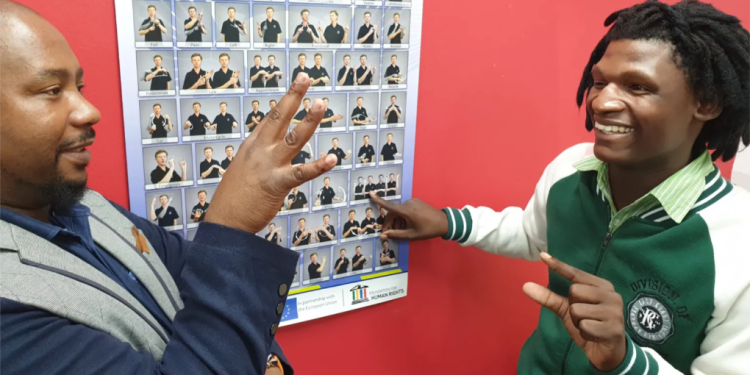Disability rights groups have called for the official recognition of the Nigerian Sign Language (NSL) as the lingua franca for the Deaf, Hard-of-Hearing, and the DeafBlind in Nigeria.
This call, issued by the Nigeria National Association of the Deaf (NNAD), the Association of Sign Language Interpreters in Nigeria (ASLIN), and the LionHeart Ability Leaders International Foundation (LALIF), aims to foster all-round inclusivity for Nigerians with hearing impairments.
Formed under the National Coalition grant of the Disability Rights Fund (DRF), the coalition emphasizes the importance of recognizing NSL as an official language in Nigeria.
This recognition is expected to provide a vital communication tool for the Deaf, Hard-of-Hearing, and DeafBlind, allowing them to fully participate in society and contribute to national growth.
Highlighting the significance of this initiative, the United Nations’ Convention on the Rights of Persons with Disabilities emphasizes the value of meaningful existence, independent living, and access to information for persons with disabilities.
In a press statement issued by the coalition, it was agreed that “the NSL’s development and official recognition align with existing legal frameworks, as well as with Sustainable Development Goals 4 (Quality Education) and 10 (Reduced Inequality).”
The statement reads in part that “the lack of a standardized language within the Nigerian Deaf Community, caused by the use of diverse signs often misinterpreted as American Sign Language or indigenous signs, results in communication gaps and misunderstandings.
“By establishing NSL as a common language, over 9 million Nigerians who are Deaf, Hard-of-Hearing, and DeafBlind will be united, fostering inclusivity among individuals, families, educators, medical professionals, policymakers, and the general public.
“Recognizing the possibility of anyone developing hearing disabilities at any stage of life, the coalition advocates for teaching NSL from primary school levels. This approach ensures that learners are equipped with the ability to interact with and support their fellow citizens if such needs arise unexpectedly.”
The coalition also noted that “as Nigeria continues its journey toward implementing the Disability Act, the recognition and teaching of NSL could empower citizens who are Deaf, Hard-of-Hearing, and DeafBlind to fully utilize the provisions of the law.”
The coalition thereafter appealed to the Federal Government to enact the National Policy on Nigerian Sign Language into law, allocate annual funding for the project, prioritize the employment of interpreters, and ensure access to information for the Deaf community through NSL.
“In a bid to foster equal access to information, facilitate academic and societal inclusion, and preserve linguistic identity, the coalition calls for the inclusion of sign language interpretations and closed captions on television stations and government events throughout the nation,” the groups said.

